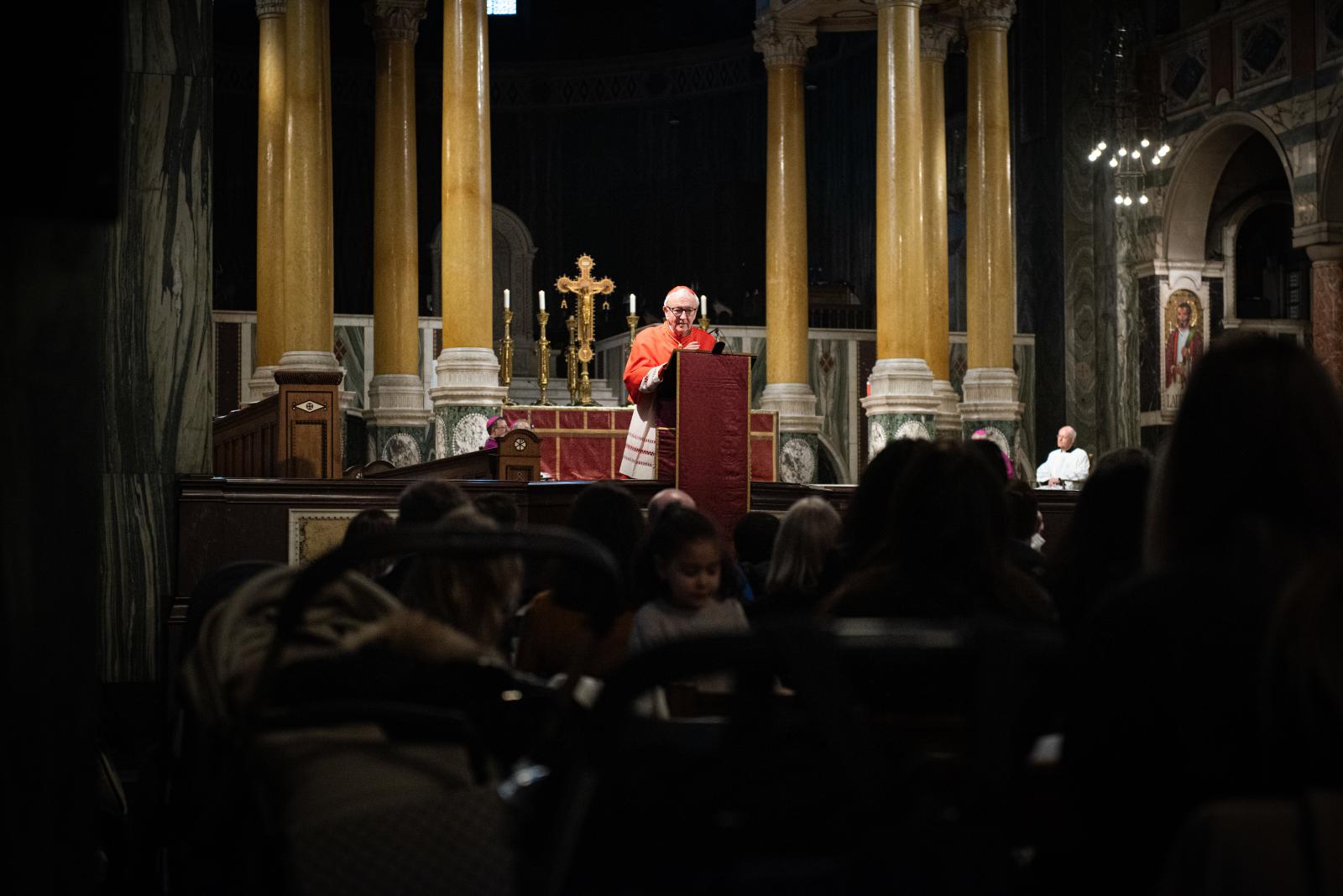Given at Westminster Cathedral on 17th February 2024, at the Rite of Election and Call to Continuing Conversion.
Today is a great celebration of our faith. It is a celebration of faith found, for many of you; of faith reaffirmed and reshaped; of faith renewed for us all, not least thanks to the witness of so many present here today. I thank you for the witness you give and the joy with which you gather.
Faith is best known as a gift of God. It is a gift by which we believe without doubting whatever God has revealed.
'Without doubting', yes. But not without questions, troubling questions, and not without searching for understanding and continual growth. Faith is a journey, a great adventure. In it we are constantly beckoned forward, to press on and grow.
This year, in our preparation for the Holy Year of 2025, we are giving special attention to the Our Father. It is indeed a focus for this Lent and a gift that you will symbolically receive in the journey towards Easter.
The Our Father is, of course, a gift from our Saviour. It was given in response to the request made of Jesus: 'Lord, teach us how to pray' (Luke 11.1). The Our Father is a gift to be deeply cherished.
The Our Father is also a profound expression of our faith. It is, in many ways, a creed. It is always good to remember that we believe what we pray. What we pray is what we believe.
There are two parts to the Our Father, each with three phrases or proclamations. Let's look at them, briefly.
The first three are addressed to God, our Heavenly Father:
'Hallowed be thy name'.
'Thy kingdom come'.
'Thy will be done'.
Each can be recited, or pondered, with the key phrase added: 'on earth as it is in heaven'.
So we can say:
'Hallowed be thy name - on earth as it is in heaven'.
And 'Thy kingdom come - on earth as it is in heaven'.
And, as we do, 'Thy will be done on earth as it is in heaven.'
Doing this helps us to enter more deeply into a very important dimension of our faith. It is this: we live here, in this world, in the light of heaven. In faith, we receive a longer horizon by which to judge and act. Yes, we live here, but we know our fulfilment is still to come. This means that we are a people of enormous and irrepressible hope! We have a hope that is beyond this world and yet already rooted, and visible, to be lived in this world.
May God's name always be hallowed. Yes, here and now, but it won’t be fully so, not yet.
May God's Kingdom come. Yes, here and now, but it won’t be fully so, not yet.
May God's will be done. Yes, here and now, but it won’t be fully so, not yet.
This is how we live - in an in-between time - taking this world utterly seriously, with all its striving and despondency, making our wholehearted contribution, for this world is of God. Yet we are also, always, waiting for the promised fulfilment of heaven and therefore never without hope, never without joy.
The second part of the Our Father concerns us and our needs.
'Give us this day our daily bread'.
Here we pray both for our physical needs and our spiritual nourishment, too. We think of both the baker and the Mass. This is simply the truth of our nature, for we are both physical and spiritual beings, and neglecting either of these dimensions is detrimental to our well-being.
'Forgive us our trespasses'.
Yes, we recognise fault and identify with the sin and failure, which is such a mark of our world. But please note, at this point, that the Our Father is a prayer of the whole Church. We pray about 'our' fault, not just 'my' fault and not about 'their' fault. You might know the old adaption of the prayer from the Mass: 'Through my fault, through my fault, through my next-door neighbours' fault!'
Every time we say the Our Father, then, it is worth remembering that through it we are being prayed for, constantly, throughout the world, just as we constantly pray for others in our prayer. We are never alone. We are always supported and strengthened by the prayers of others, the constant refrain of the Our Father, offered in every moment and in every place.
'As we forgive others'. The mercy we receive from our loving Lord must flow. Mercy received cannot be stored up as a personal possession or treasure. Mercy has to be shared. And when mercy flows then it increases. The flow of the saving mercy, won by Jesus, flowing from the Father, depends on our generosity and willingness to forgive those who offend us.
'Lead us not into temptation but deliver us from evil'.
This is our final prayer: that the Lord will guide our steps each day in the right path, through the choices we make, the steps we take, and the ambitions to which we aspire. And here we remember the words of Jesus: ‘I am the way, the truth and the life' (Jn. 14.6).
And the discovery of this great gift of Jesus, the gift of faith in Him, is precisely what we celebrate today.
Lord Jesus, be our Way, help us to be heralds of your Kingdom, those who hallow your name, who strive to do your will, who find nourishment and forgiveness in you and who let your mercy flow abundantly in our needy world. Amen.
✠Cardinal Vincent Nichols
Archbishop of Westminster
